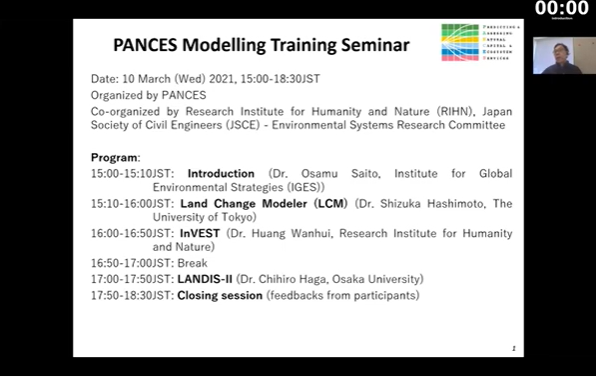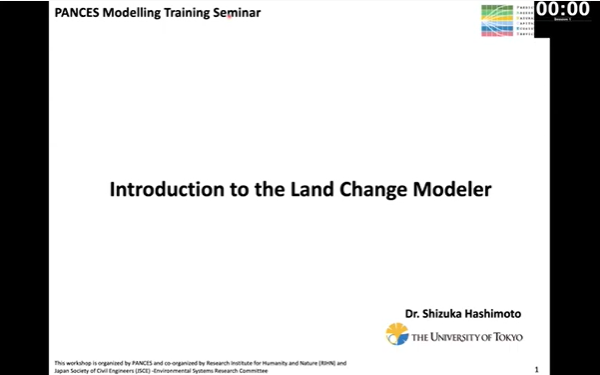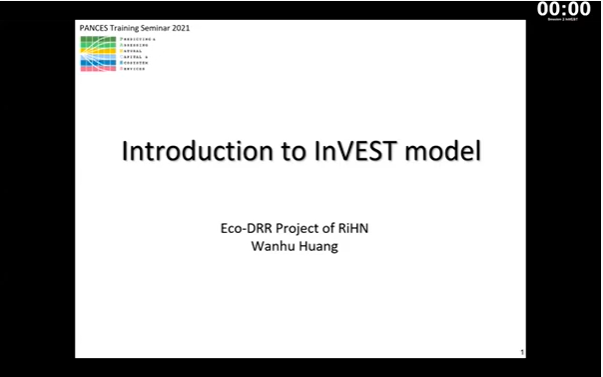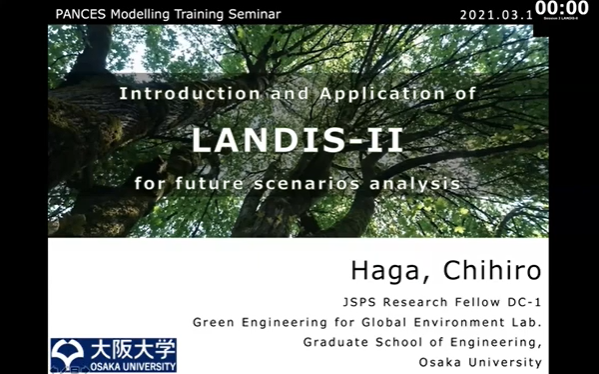PANCES Modelling Training Seminar videos was opened.
PANCES Modelling Training Seminar videos
PANCES Modelling Training Seminar videos was opened on Youtube.
This seminar was organized by PANCES on 10 March (Wed) 2021, 15:00-18:30JST
1.Introduction by Dr.Osamu Saito, IGES
In 2016 the PANCES (Predicting and Assessing Natural Capitals and Ecosystem Services) project was launched to respond to scientific and policy needs, inviting 30 research institutes and more than 100 researchers in Japan (http://pances.net/eng/). The project predicts and assesses future natural capital and ecosystem services (nature’s contributions to people) and their natural and social-economic values by building an integrated model of social-ecological systems. Using various models and case studies developed by the project, this training seminar was designed for students and young researchers who are interested in studying future scenarios analysis, land use and cover change analysis, and ecosystem services assessment. The seminar provided basic theory, modeling methodology, and specific case studies.

2.Land Change Modeler(LCM) by Dr.Shizuka Hashimoto, The University of Tokyo
Land Change Modeler is an innovative land planning and decision support system that is fully integrated into the TerrSet software. With an automated, user-friendly workflow, Land Change Modeler simplifies the complexities of change analysis. Land Change Modeler allows you to rapidly analyze land cover change, empirically model relationships to explanatory variables, and simulate future land change scenarios. (https://clarklabs.org/terrset/land-change-modeler/)

3.InVEST(Integrated Valuation of Ecosystem Services and Tradeoffs) by Dr.Huang Wanhui, Research Institute for Humanity and Nature
InVEST is a suite of models used to map and value the goods and services from nature that sustain and fulfill human life. It helps explore how changes in ecosystems can lead to changes in the flows of many different benefits to people. (https://naturalcapitalproject.stanford.edu/software/invest)

4.LANDIS II(Forest Landscape Model Simulater)
The LANDIS-II simulates future forests (both trees and shrubs) at decadal to multi-century time scales and spatial scales spanning hundreds to millions of hectares. The model simulates change as a function of growth and succession and, optionally, as they are influenced by range of disturbances (e.g.,fire, wind, insects), forest management, land use change. Climate and climate change affect processes throughout the model. LANDIS-II is highly customizable with dozens of libraries ('extensions') to choose from. (http://www.landis-ii.org/)

2021/03/17